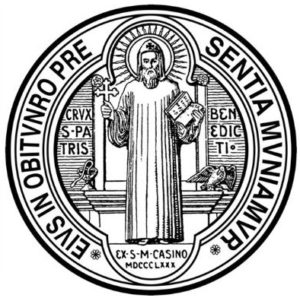 These prayers are for use to the Catholic who is anxious to follow the advice of Saint Benedict to pray frequently but to make prayers short and fervent. To help the Catholic pray intelligently and according to the mind of the Church, explanatory material precedes each devotion and many individual prayers. Of special interest also will be the prayers of ecclesiastics and laymen composed to meet the particular needs.
These prayers are for use to the Catholic who is anxious to follow the advice of Saint Benedict to pray frequently but to make prayers short and fervent. To help the Catholic pray intelligently and according to the mind of the Church, explanatory material precedes each devotion and many individual prayers. Of special interest also will be the prayers of ecclesiastics and laymen composed to meet the particular needs.
Personal and private devotions would certainly be reprehensible and sterile were they to be employed to the exclusion of, or neglect of, the Mass and the Sacraments. “But when pious practices not closely linked with the sacred liturgy seek only to raise up a man’s activity to our heavenly Father, to move him to repentance and a salutary and holy fear of God, to withdraw him from the attractions of the world and sin and bring him back to the arduous path that leads to perfection–then they are not only most admirable but quite necessary. They reveal the snares that beset us in the spiritual life, they incite us to virtue, and they increase the fervor with which we must dedicate ourselves whole and entire to the service of Jesus Christ” (PoPE PIUs Xll). It is in that spirit that this information is offered.
When we love someone, our conversations with that person are full of all sorts of talk-of joys, sorrows, hopes and dreams-and sometimes just pleasant silences. Although speaking to the Creator of the universe may awe us a bit, essentially prayer is meant to be loving conversation between two persons, God and man. Certainly it differs from ordinary human-to-human talk, for in our prayers we express adoration; and this attitude of the mind can be directed to God alone. Nevertheless, when the Apostles said to Christ: “Lord, teach us to pray” (Luke 11:1), He directed them to approach God saying, “Our Father.”
Men could never have dreamed of such familiarity with the all-powerful God, but such is Christ’s message of divine condescension. He taught us the “Our Father” in response to the Apostles’ and our need to know how to pray. It is a model for all prayer. The very first words indicate the frame of mind and the attitude of will we need for prayer pleasing to God. We are children of a loving Father, and “if you, evil as you are, know how to give good gifts to your children, how much more will your Father in heaven give good things to those who ask Him!” (Matthew 7:11).
For what can we pray? Christ has shown us this also. We pray in praise of God’s goodness and power–“hallowed be Thy name.” We pray, too, that God’s kingdom of justice and love, the Mystical Body, will be extended to all men, and that together we will enjoy the union of Christ and His members in heaven. Certainly, then, we can and should pray specifically for the missions, for vocations, for all classes of society. But underlying all our requests is the desire that God’s Will be done. All our prayers for guidance in our personal decisions, for our government, for the Church should be in the framework of willing for the Will of God.
Although Christ also taught us not to be overanxious about food, clothing and shelter–“for your Father knows that you need all these things” (Matthew 6:32)–petitioning for such things can reflect our dependence on God. Thus prayers for all sorts of necessities and daily needs are approved by the Church: prayers for study, for a journey, at the time of childbirth, in time of war, for growth in virtue. “Give us this day our daily bread” refers not only to our physical needs, but also to the need we have for God’s sustaining grace in all our tasks each day. And, as we love God as a Father, we will seek forgiveness for our disobedience and disrespect. All these petitions, our praise and adoration, and our thanksgiving can make up our conversations with God. He is our Father, and He will listen even to His most awkward children.
From The Prayer Book-Beautiful and helpful prayers from ancient and modern sources edited by Reverend John P O’Connell, MA, STD and Jex Martin, MA The Catholic Press, Inc., Chicago Illinois in 1959. iii-v. © 1954 Imprimatur Samuel Cardinal Stritch, Archbishop of Chicago May 10 1954. Print
